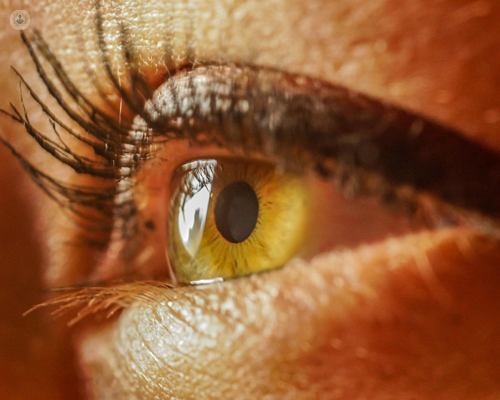Don’t lose sight of what matters: macular degeneration
Written by:Many people may take their eye health for granted with perfect or near-perfect vision. Once the vision starts to distort or disappear, our lives are changed. Macular degeneration is a condition that has this impact, but it can be caught early. Experienced consultant ophthalmologist Dr Rupal Morjaria explains what it is and informs us about the essentials.

What is macular degeneration?
One of the top five causes of vision loss worldwide is macular degeneration. The part of the retina that is responsible for the central, reading vision is what is called the macular. The two types of macular degeneration can be described as dry or wet. Early distortion or loss of central vision can be present in both conditions and it is more common in people over the age of 50.
Younger people may present with macular degeneration. Risk factors are very high short-sightedness, previous inflammatory conditions, or a strong family history of macular degeneration.
What are the symptoms of macular degeneration?
The common symptoms of macular degeneration are:
- visual distortion
- difficulty reading
- need for brighter light or magnifiers
- straight lines looking wavy
- difficulty recognising faces
Are there any predisposing factors? If so, what are they?
Yes, there are. Predisposing factors include:
- genetic factors
- age
- smoking
- UV light
- diet
What is dry macular degeneration?
Dry macular degeneration may remain stable for years and slowly deteriorate. The peripheral vision for navigation remains intact, though there can be a varying speed of loss of central vision. There are currently no approved treatments for dry macular degeneration.
What is wet macular degeneration?
Compared to its dry counterpart, wet macular degeneration may present more quickly and with a rapid reduction of vision. The leakage of fluid into the layers of the camera film causes this condition. Urgent treatment is required, which is normally injections of drugs known as anti-VEGF drugs.
Presently, common treatments that have been approved and are regularly used in the UK are Ranibizumab (Lucentis), Aflibercept (Eylea), and Bevacizumab (Avastin). At the moment, there are many trials underway for new treatment regimes, or they are waiting for approvals in the UK.
What advice would you recommend?
To monitor distortion regularly, use an Amsler grid whilst covering one eye at a time during testing. Eat a “Mediterranean” diet which is rich in green leafy vegetables and oily fish. Wear sunglasses and headwear, such as caps. Specialist vitamins for the health of your eyes with Xanthine and Lutein, have been found to delay the worsening of macular degeneration.
If you have concerns about your vision or would like more information, you can go to Dr Rupal Morjaria’s Top Doctors profile and book a consultation.


